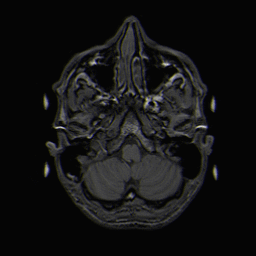
I page the infectious disease fellow, who's staffing the antibiotic approval pager. I know him: he was a resident when I was a medical student. He calls me back. I tell him briefly about the patient, and say, "We want IV vancomycin."
"When you were in medical school," he says, joking with me but also not, "You were this cool progressive socialist guy, ready to fight the system. Now you're calling me with this. So, I'll approve it, even though it's a NIMBY thing that will increase antibiotic resistance for other people. But what happened to you? What happened to the idealism?" He's making fun of me a little, but also I think wondering about the actual answer to the question.
"If I thought about health policy for more than a minute of my day," I tell him, "I couldn't get anything done."
I once heard an ICU nurse, frustrated with the night's project of keeping some very old and utterly unconscious person alive with expensive equipment and unclear benefit other than satisfying the person's relatives that "everything is being done", and she blurted out, "This is insane. We should be taking this money and investing it in children." Fair point. But either she ignores that point of view for most of her day or she's going to have to get a new nursing job.
I send people to MRIs all the time; as one attending of mine said, Boston probably has more MRI machines than all of Ontario. The availability of MRIs drives our willingness to order new studies; if it was harder to get someone into an MRI, we'd accept the slightly less exact findings of a CT, and so on.
Obviously from a policy point of view this suggests we should probably send less people to MRIs. But as an intern, my job is to carry out the medical plan, and to suggest aspects of that plan. I don't have the final authority over that plan. It is usually not for me to decide if someone gets an MRI or doesn't, at least not on a policy basis. It might not even be for the attending to decide: if other people in the area usually get MRIs for a particular problem, it begins to become negligence if the attending doesn't get their own patients the MRI.
Either way, I order IV vancomycin and MRIs all the time, among many other things, much of it on the federal government's Medicare tab, while the president says the federal government shouldn't get more involved in making sure children have health insurance. It's not like this cost comes out of nowhere; when healthcare dollars go to MRIs, there's somewhere else they're not going. When we use broad spectrum antibiotics to "cover" someone with a fever we can't yet diagnose, it costs money and increases bacterial resistance.
But if I'm honest, it's not just the system that demands this of me. My own views are full of contradictions: when facing an individual I am ready to go all out, to order everything that might have some benefit.
When thinking about the society, I think that there should probably be some limit to this. But I'm not the one who makes the limits. More often, as an intern in a large teaching hospital, I push the limits.
I say something about this to the ID fellow, and say that even if I had any power at this point, I'm not sure what I would do about this contradiction of wanting limits and abhorring them. We're quiet for a second.
Then I say, "Anyway, we want our IV vancomycin."
"Another resistant organism being created, at exorbitant cost," he says.
"Yep," I say. "Still, we want it."
"Done," he says, clearing it off the approval queue on his computer screen.






